Turn any article into a podcast. Upgrade now to start listening.
Premium Members can share articles with friends & family to bypass the paywall.
We’re actively working on improvements to better serve our community, and we want to hear directly from our readers about their experience with our content. Will you take 5-10 minutes to share your thoughts in a quick survey? Your responses will help us continue to improve your Dispatch experience.
We’re actively working on improvements to better serve our community, and we want to hear directly from our members about their experience with our content. Will you take 5-10 minutes to share your thoughts in a quick survey? Your responses will help us continue to improve your Dispatch experience.
Happy Monday! As much as one editor would like to use this space to note that the Green Bay Packers lost to the lowly Cleveland Browns yesterday while the Chicago Bears stomped on the Dallas Cowboys, we have more important news to get to.
Later this morning, SCOTUSblog—which The Dispatch acquired earlier this year—will be introducing a daily newsletter, SCOTUStoday, covering the latest Supreme Court developments and trends. Every weekday, SCOTUStoday will offer “Morning Reads,” a summary of recent news and opinion pieces about the court; “SCOTUS Quick Hits,” detailing the latest happenings; “A Closer Look,” a short feature on one particularly salient aspect of the court’s work; and “On Site,” an overview of the most popular and influential articles on SCOTUSblog. You can sign up here to receive SCOTUStoday in your inbox.
Quick Hits: Today’s Top Stories
- President Donald Trump signed an executive order on Friday to restrict access to the government’s employer-sponsored H-1B visa program—which businesses use to acquire temporary legal status for foreign workers—to only “those aliens whose petitions are accompanied or supplemented by a payment of $100,000,” per its text. White House press secretary Karoline Leavitt later clarified that the fee would only apply to new applicants, and not current H-1B visa holders who were outside U.S. borders, though several major companies—including Amazon, Goldman Sachs, Google, Microsoft, and Tesla—advised H-1B visa employees to return to the U.S. if currently abroad, and to remain in the country for the near future. Leavitt also stated that the fee was a “one-time” payment, contradicting comments made earlier that day by Commerce Secretary Howard Lutnick, who, while Trump was signing the order, told reporters that payments are “$100,000 a year.” Meanwhile, the order also allows the homeland security secretary to waive the fee at his or her discretion, if that person’s employment “is in the national interest and does not pose a threat to the security or welfare of the United States.”
- The Senate on Friday failed to advance two separate short-term spending bills to fund the government and prevent a looming government shutdown, which, in the absence of new legislation, is set to begin on October 1. The chamber first voted on a proposal from Democrats that would fund the government through all of October—as well as restrict the president’s authority to revoke congressional appropriations and extend subsidies under the Affordable Care Act—but the plan received just 47 votes, well short of the 60-vote threshold needed to pass. Later that day, in a 48-44 vote, the Senate failed to advance a bill to fund the government through November 20 that the House had passed earlier that morning. The second vote was largely along party lines, although Democratic Sen. John Fetterman of Pennsylvania voted in favor of the bill, while Republican Sens. Lisa Murkowski of Alaska and Rand Paul of Kentucky opposed it. When asked about the Republican-supported bill passed in the House, GOP Senate Majority Leader John Thune of South Dakota said, “Looks to me like it’s this or a shutdown.”
- MSNBC first reported on Saturday that White House border czar Tom Homan, in September 2024, reportedly accepted $50,000 in cash from undercover FBI agents, according to unnamed people familiar with the investigation and government documents reviewed by the news agency. Homan reportedly indicated to undercover agents posing as businessmen that he could help them win government contracts if Trump were to win the 2024 election. The Trump administration closed the investigation in recent weeks, and, according to FBI Director Kash Patel and Deputy Attorney General Todd Blanche, neither FBI agents nor Justice Department prosecutors found “credible evidence of any criminal wrongdoing.” In response to the reports, Homan on Sunday told CBS local news affiliate, 7News, that there was “nothing to it.” Meanwhile, White House spokeswoman Abigail Jackson said in a statement, “This blatantly political investigation, which found no evidence of illegal activity, is yet another example of how the Biden Department of Justice was using its resources to target President Trump’s allies rather than investigate real criminals and the millions of illegal aliens who flooded our country.” She added that Homan “has not been involved with any contract award decisions” in the administration.
- Trump announced on Friday that the U.S. military fired at and destroyed a suspected drug trafficking vessel, killing all three aboard, the third such strike this month. U.S. intelligence, per Trump, had confirmed the boat was “affiliated with a Designated Terrorist Organization” and carrying illegal narcotics, while traveling along a route that was a “known narcotrafficking passage” to the U.S. Trump said the strike occurred in international waters in the area of U.S. Southern Command, which oversees operations in South and Central America, the water around it, and the Caribbean Sea. In recent weeks, the U.S. military has increased its presence in the region, with eight naval ships stationed in the Caribbean, as well as fighter jets and military drones based in Puerto Rico.
- The U.S. attorney for the Eastern District of Virginia, Erik Siebert—who had been investigating New York Attorney General Letitia James on potential mortgage fraud involving her Brooklyn Townhouse and a Virginia home—resigned on Friday after Trump told reporters earlier that day that he wanted him “out” of the position. Siebert had not pressed any charges against James, but Trump said on Friday, “It looks to me like she’s really guilty of something, but I really don’t know.” On Saturday, Trump announced on social media that he nominated Lindsey Halligan, a White House special assistant to the president and attorney who worked on cases for Trump, to succeed Siebert. Meanwhile, news outlets also reported on Saturday that Attorney General Pam Bondi named federal prosecutor Mary Cleary as acting attorney for the district.
- Argentina’s central bank has sold about $1.1 billion in three days to defend its currency, the Argentine peso. The central bank sold about $678 million in reserves on Friday—the country’s largest single-day selloff since October 2019—after selling $379 million on Thursday, and $53 million the day before that. Argentina’s President Javier Milei said on Friday that the market was “in panic mode,” as many investors have pulled capital out of the country, fearing the Argentine peso will lose value. Meanwhile, Milei is set to meet with Trump in New York on Tuesday.
- Federal District Judge Steven Merryday on Friday struck down Trump’s $15 billion defamation lawsuit against the New York Times, giving his legal team 28 days to file a new complaint, because the one submitted was “decidedly improper and impermissible.” Merryday wrote that the 85-page complaint, which identified two separate allegations of defamation, was unnecessarily long, and wrote that suits filed in court are not a “megaphone for public relations or a podium for a passionate oration at a political rally or the functional equivalent of the Hyde Park Speakers’ Corner.” Merryday gave Trump’s legal team a 40-page limit for the new complaint. In response to the ruling, Trump told ABC’s Jonathan Karl later on Friday, “I’m winning, I’m winning the cases.”
- Trump announced on social media Friday that, following a phone call with Chinese leader Xi Jinping, the pair of leaders has agreed to meet in November at the Asia-Pacific Economic Cooperation in South Korea for their first in-person meeting since 2019. Trump added that he would travel to China early next year to meet with Xi again, “and that President Xi would, likewise, come to the United States at an appropriate time.” In a post on social media, Trump added that the two discussed “Trade, Fentanyl, the need to bring the War between Russia and Ukraine to an end, and the approval of the TikTok Deal.”
- According to a memo shared with media outlets on Friday, the Trump administration will require reporters at the Pentagon to sign an agreement pledging not to share information that has not been explicitly approved for release or face losing their press credentials. The memo also provided stricter guidance for reporters’ access within the building. “The ‘press’ does not run the Pentagon—the people do,” Defense Secretary Pete Hegseth tweeted on Friday, linking to a Daily Wire news article which first reported on the memo. “The press is no longer allowed to roam the halls of a secure facility,” Hegseth added. “Wear a badge and follow the rules—or go home.”
- Leaders of Australia, Canada, Portugal, and the United Kingdom each announced on Sunday formal recognition of Palestinian statehood, stating that this gesture is a step toward peace and would not involve or aid Hamas. In response, Israeli Prime Minister Benjamin Netanyahu said that the countries’ leaders were “handing a huge reward to terror,” and that “it will not happen.” He added he will give a response after meeting in New York at the U.N. General Assembly later this week.
A message from SCOTUSblog
The Supreme Court Moves Fast. SCOTUStoday Helps You Keep Up.
SCOTUStoday is your daily briefing from the nation’s leading Supreme Court authority. Every weekday, SCOTUStoday brings SCOTUSblog’s renowned depth and insight directly to your inbox. Whether you’re a legal professional tracking every cert petition or a citizen seeking to understand how the Court shapes American life, SCOTUStoday is set to become an unmissable part of the court watcher’s morning routine.
Late Night with Brendan Carr
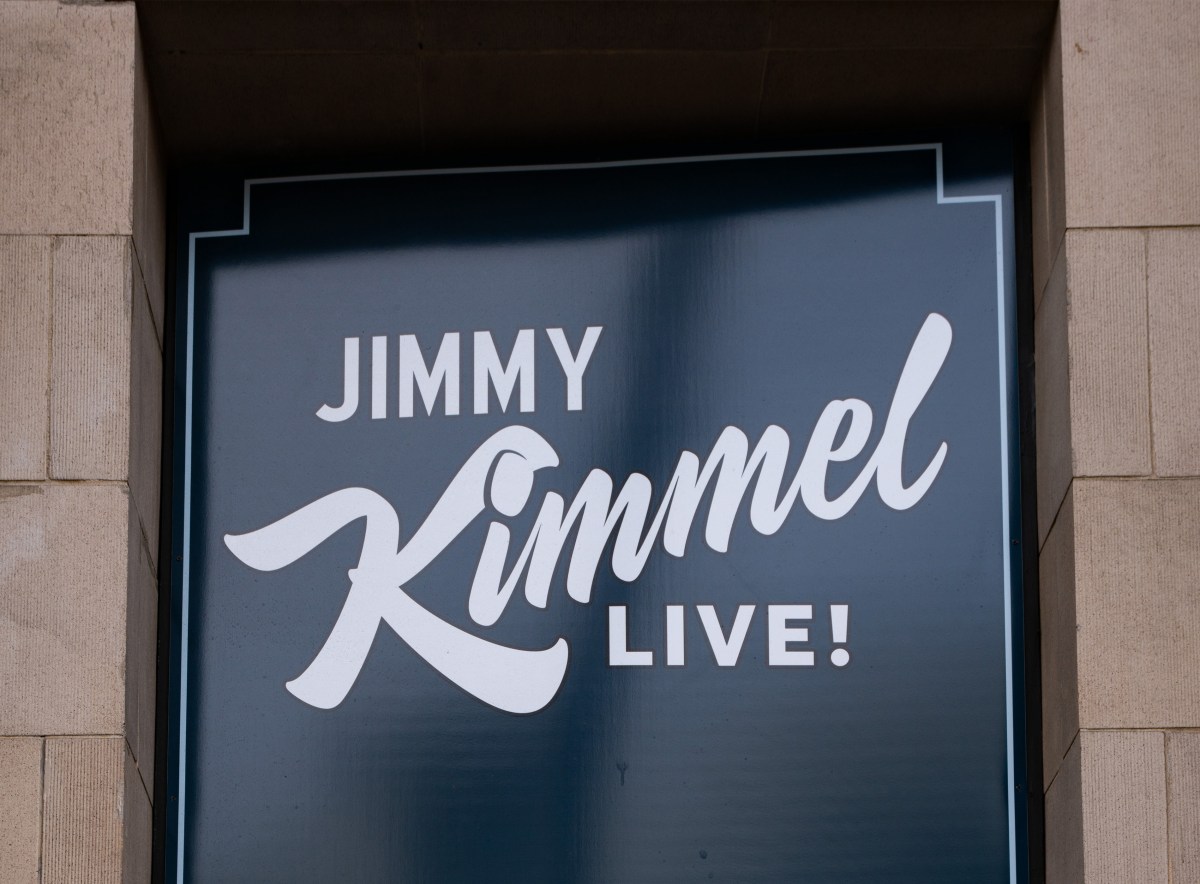
Comedian and late-night talk show host Jimmy Kimmel was ready to address his critics.
During his monologue last Monday, Kimmel had said, “We hit some new lows over the weekend with the MAGA gang desperately trying to characterize this kid who murdered Charlie Kirk as anything other than one of them.” Despite initial speculation about the alleged shooter being far-right, there has never been evidence suggesting that Tyler Robinson was MAGA-affiliated—and increasing evidence that he had “started to lean more to the left” in recent years. Right-wing commentators had erupted over Kimmel’s comments, and the comedian was reportedly planning to respond during his Wednesday night monologue by arguing that his remarks had been twisted out of context by his political opponents.
But there was no Wednesday show.
As a non-paying reader, you are receiving a truncated version of The Morning Dispatch. You can read our full item in the members-only version of TMD.
On Wednesday, Federal Communications Commission (FCC) Chair Brendan Carr said he was disgusted by Kimmel’s remarks, and indicated that he wanted to take action against ABC, which airs the show. “These companies can find ways to change conduct,” he said on right-wing activist Benny Johnson’s podcast, “or there’s going to be additional work for the FCC ahead.” In response, according to reporting in the Wall Street Journal, advertisers and affiliates were soon calling ABC, and Nexstar and Sinclair (which combined own more than 60 local ABC affiliate stations) soon announced they would not be broadcasting Kimmel’s show that night, and for the foreseeable future. Sinclair—which is right-leaning—also demanded Kimmel issue “a direct apology” and make a “meaningful personal donation” to Kirk’s family and to his student activist group, Turning Point USA.
When Dana Walden—co-chair of ABC’s parent company, Disney—spoke with Kimmel about his plans for Wednesday’s show, she said that she and other Disney executives feared that he would only make things worse for the network. And after a meeting with Disney CEO Bob Iger, they made the decision: Jimmy Kimmel Live! would be taken off the air “indefinitely.”
The FCC was established in 1934 by the Communications Act—replacing the earlier Federal Radio Commission—initially to regulate interstate and international telephone, wire, and radio communications, and eventually expanding to encompass broadcast, cable, and satellite television and internet technologies.* Given the limited electromagnetic spectrum for broadcasting, the agency’s role was to ensure it was operated in the public interest, and the FCC’s central powers included enforcing communication laws, allocating spectrum, and licensing broadcasters. In short, as the act states, the Commission’s mandate is to regulate consistent with the “public interest, convenience, and necessity.” Carr argued on the aforementioned podcast that “we have a rule on the book that interprets a public interest standard that says news distortion is something that is prohibited,” and on Friday, after Disney’s decision, Carr said that Kimmel’s comments were an attempt to “directly mislead the American public.”
But Rob Frieden—an emeritus professor of telecommunications and law at Penn State University—told TMD that defining the FCC’s mandate in a way that would penalize tasteless and factually inaccurate comments made by a late-night talk show host is “pushing the envelope.” The “public interest” mandate, per Frieden, should be interpreted in the light of Section 326 of the same Act, which stipulates that nothing “in this Act shall be understood or construed to give the Commission the power of censorship.”
Robert Corn-Revere, chief counsel for the Foundation for Individual Rights and Expression and former chief counsel for the FCC, concurred. “The public interest standard is not a blank check,” he told TMD. The “Fairness Doctrine,” he noted—which required broadcasters to provide balanced coverage of “issues of public importance”—was repealed by President Ronald Reagan’s FCC as too much of an intrusion on First Amendment rights.
But even if general language about the “public interest” has been interpreted in the past as giving the FCC some say over content, “it has never meant that the FCC as an agency can determine what programs are the right programs to air,” Corn-Revere argued. In the agency’s statement of what sort of speech it can regulate, posted on its own website, it notes that regulations are limited to “specific topics,” including obscenity, conduct of on-air contests, and hoaxes—along with news distortion. As Carr himself tweeted in February 2019, “Should the government censor speech it doesn’t like? Of course not. The FCC does not have a roving mandate to police speech in the name of the ‘public interest.’”
Clay Calvert, an emeritus professor at the Levin College of Law at the University of Florida and a senior fellow at the American Enterprise Institute, told TMD that typically, only a “staging or deliberate fabrication of news” rises to the standard. The FCC website also notes that it will only enforce penalties when it can be proven that broadcasters “have deliberately distorted a factual news report. Expressions of opinion or errors stemming from mistakes are not actionable.”
However, many on the right have contended that the FCC has not actually taken any action against Kimmel or ABC. Those blaming Carr for ABC’s decision to take Kimmel off the air were “wrong on the facts,” Sen. Tom Cotton, a Republican from Arkansas, argued on social media on Friday. “The network made the common-sense BUSINESS DECISION that lying while mocking a horrific murder is bad for ratings.”
That said, the FCC needn’t take direct regulatory action to chill speech. In 2024’s NRA v. Vullo, the Supreme Court held that government pressure on private actors can violate the First Amendment. In a unanimous decision, Justice Sotomayor wrote that New York financial superintendent Maria Vullo’s “guidance” letters—urging insurers and banks to avoid the NRA—were “reasonably understood as coercive,” adding that “the First Amendment prohibits government officials from wielding their power selectively to punish or suppress speech.”
But what about the Biden administration’s attempts to bully social media companies into taking down or labeling what it deemed “misinformation” during the COVID-19 pandemic? “Guys, it was literally *June 2024* when the Supreme Court ruled that it was ok for the Biden Administration to pressure tech platforms to censor COVID lockdown skeptics,” Avik Roy—co-founder of the Foundation for Research on Equal Opportunity and a prominent voice in conservative policy circles—wrote on X. “No one tweeting today about the ‘dire threats to free speech’ had anything to say about it.” However, in that case—Murthy v. Missouri—the court ruled 6-3 on standing grounds without addressing the merits of the constitutional question, unlike Vullo, which directly ruled on the First Amendment violation.
According to Olivier Sylvain, a professor at Fordham University’s law school who focuses on communications law, Carr’s threats also had more weight behind them than complaints from the Biden White House. “The Biden administration didn’t have equivalent authority with regards to social media” compared to Carr’s direct authority over broadcast licenses, he told TMD. “The consequences of the Carr threat are clear.”
The FCC also has significant leverage over another critical part of the broadcast TV industry: mergers. Nexstar, a company that owns 32 ABC affiliate stations, is currently pursuing a $6 billion merger with Tegna, which owns 13 affiliate stations. Roughly five hours after Carr’s interview with Benny Johnson last week, Nexstar announced that it would not be airing Kimmel’s show for the foreseeable future. “Nexstar strongly objects to recent comments made by Mr. Kimmel concerning the killing of Charlie Kirk,” the company said in a statement.
The FCC has already demonstrated its willingness to intervene during mergers. Shortly before the FCC ruled on its merger with Skydance Media, Paramount announced that it would appoint an ombudsman to investigate news bias at CBS News, and on July 2, the company settled a flimsy personal lawsuit from Trump for $16 million, right as Carr and the FCC opened a news distortion inquiry into 60 Minutes. The FCC approved the merger on July 25.
CBS’ settlement terms may have influenced Disney’s decision to pull Kimmel off the air, Calvert argued. “I think ABC could probably see, ‘Okay, do we want to get to the point where we’re fighting this, and we have to do something like that?’” he said. “No, it’s easier at this stage just to capitulate.” Kimmel might have a case in court—Frieden told TMD that the case wouldn’t have the “factual background” to “show that Kimmel directly incurred damages,” whereas Corn-Revere disagreed with this and said “the legal principles here are clear”—but Kimmel and ABC have given little indication they want to pursue that route.
The president, however, appears eager to continue the campaign against the media. “Congratulations to ABC for finally having the courage to do what had to be done,” Trump wrote on social media on Wednesday. “That leaves Jimmy and Seth, two total losers, on Fake News NBC,” he added, referring to Jimmy Fallon and Seth Myers. “Do it NBC!!!”
Some Republicans, however, have expressed alarm at the apparent eagerness of the White House to go after its enemies in the media. Carr’s statements were “dangerous as hell,” Sen. Ted Cruz, a Republican from Texas, said Friday on his podcast. “It might feel good right now to threaten Jimmy Kimmel, yeah, but when it is used to silence every conservative in America, we will regret it.”
Today’s Must-Read
What’s so devious about the social problems caused by the internet is that there is no policy program, no fatwa, no Amish theocracy that could wind back the clock: Technology doesn’t work like that. Indeed, the most unrealistic part of Dune, with its interstellar travel and magic laser shields, is actually the “Butlerian Jihad,” the idea of a populist, atavistic revolt so thorough that all tech progress stops in its tracks or even reverses. Indeed, the Luddites fought a losing battle: The machines were never going to leave the factories, no matter how many they destroyed. So we’re stuck with the internet. But … we kind of can’t be stuck with it as it is. The question then becomes: How can we change our relationship with the internet so that it works for us, rather than against us?
Toeing the Company Line
The Jawboning Is the Point
Was bullying ABC and Jimmy Kimmel a strategic mistake?
Our Real Enemy in the Culture Wars Is Nihilism
We fight each other instead of keeping in view a vision of the good.
The Cracks Emerging in America’s Vaccine Protocols
The chaos and confusion at a meeting where a CDC panel narrowed vaccine recommendations.
When Political Violence Threatened Gerald Ford’s Life
The former president escaped two attempted assassinations in just over two weeks.
Implausible Deniability at the FCC
Brendan Carr is speaking loudly and wielding the government’s big stick—and he knows it.
Tearing Down China’s ‘Great Firewall’
Leaked documents expose the global spread of China’s cyber repression.
‘Unnatural’ Doesn’t Mean ‘Wicked’
The much-anticipated ‘Against the Machine’ is just a bit too simplistic.
We Weren’t Made to Eat Alone
The joy of church potlucks, meal trains, and other shared meals.
What J.K. Rowling Gets Right About Humanity
Both of her book series share an honest, hopeful thread.
A Saint for All Times
A new movie shows that dignity can persist despite darkness.
The Psychology of Mass Violence | Interview: Adam Lankford
You have your Booths and you have your Hinckleys.
Worth Your Time
- Nicholas Kristof opened his latest New York Times feature with the following line: “The Trump administration has claimed that no one has died because of its cuts to humanitarian aid, and it is now trying to cancel an additional $4.9 billion in aid that Congress already approved.” But as he wrote throughout the piece, for which he visited villages throughout southwestern Uganda, “not only are aid cuts killing children every day, but … the death toll is accelerating.” He continued: “Stockpiles of food and medicine are running out here. Village health workers who used to provide inexpensive preventive care have been laid off. Public health initiatives like deworming and vitamin A distribution have collapsed. Immunizations are being missed. Contraception is harder to get. Ordinary people are growing weaker, hungrier and more fragile. So as months pass, the crisis is not easing but growing increasingly lethal—and because children are particularly vulnerable, they are often the first to starve and the first to die.”
Presented Without Comment
New York Times: Trump Says Critical Coverage of Him Is ‘Really Illegal’
President Trump said Friday that news reporters who cover his administration negatively have broken the law, a significant broadening of his attacks on journalists and their First Amendment right to critique the government.
A day after asserting that broadcasters should potentially lose their licenses over negative news coverage of him, Mr. Trump escalated his condemnations of the press, suggesting such reporters were lawbreakers.
“They’ll take a great story and they’ll make it bad,” he said, speaking to reporters in the Oval Office. “See, I think that’s really illegal.”He added: “Personally, you can’t take, you can’t have a free airwave if you’re getting free airwaves from the United States government.”
Also Presented Without Comment
Fox News: Kamala Harris Reveals Reservations About Transgender Athletes in Women’s Sports in New Book
Also Also Presented Without Comment
The Guardian: Oklahoma Republicans Propose All State Colleges Must Have Charlie Kirk Statue
Republican lawmakers in Oklahoma introduced legislation this week that would require every public university in the state to construct “a Charlie Kirk Memorial Plaza”, with a statue of the assassinated Republican activist and a sign calling him a “modern civil rights leader”, or pay monthly fines.
Let Us Know
Have any thoughts or questions about today’s newsletter? Drop us a note in the comments!
Clarification, September 22, 2025: This newsletter has been updated to make clear that the FCC’s remit has expanded since its creation in 1934.


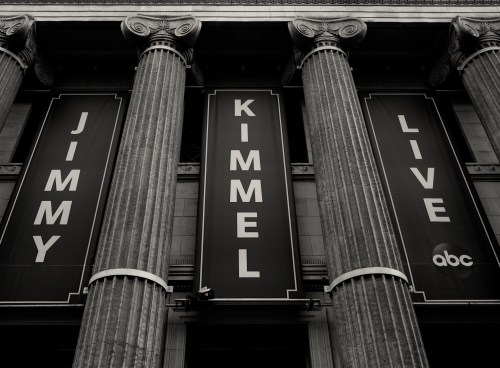
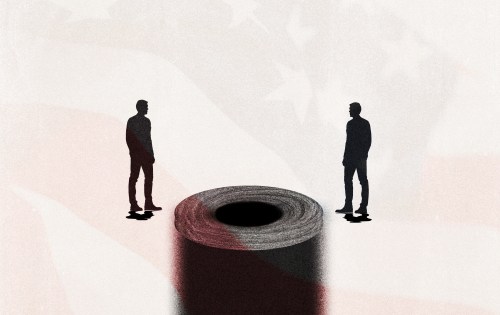
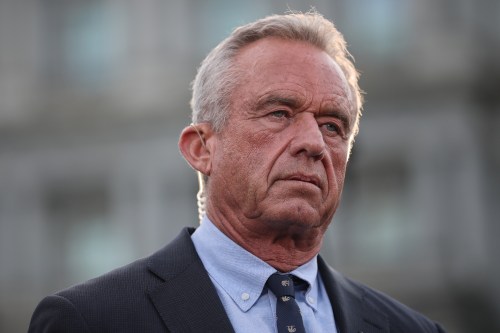







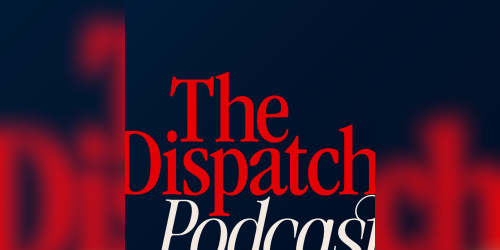




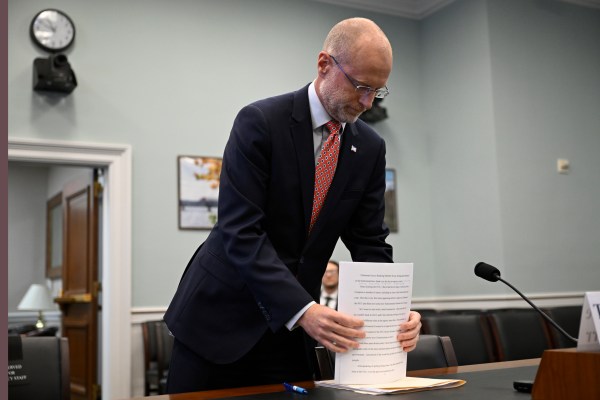
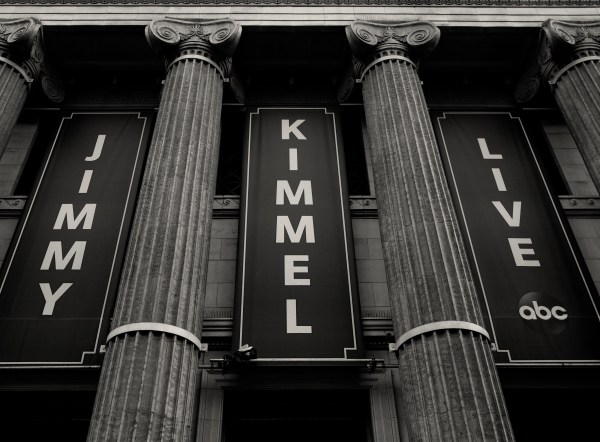
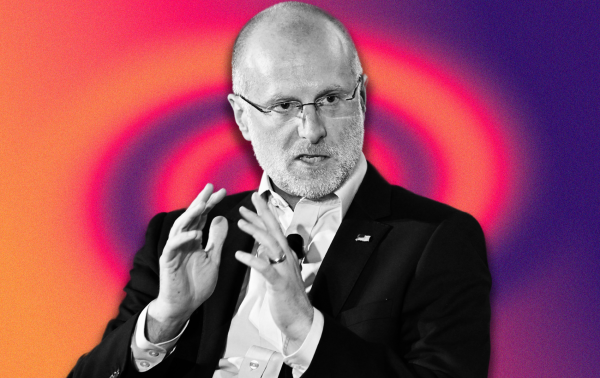
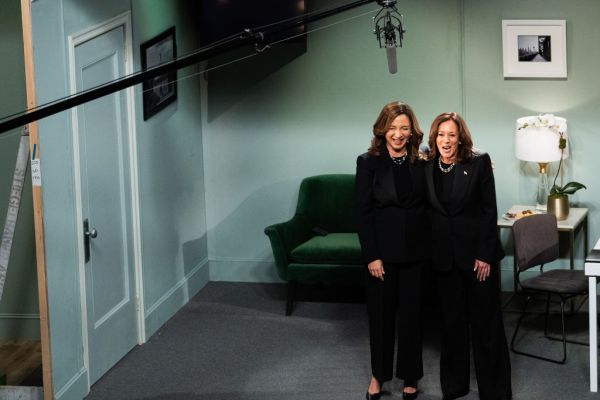
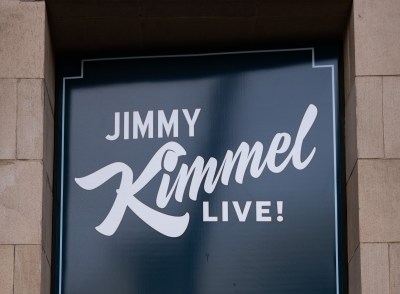
Please note that we at The Dispatch hold ourselves, our work, and our commenters to a higher standard than other places on the internet. We welcome comments that foster genuine debate or discussion—including comments critical of us or our work—but responses that include ad hominem attacks on fellow Dispatch members or are intended to stoke fear and anger may be moderated.
With your membership, you only have the ability to comment on The Morning Dispatch articles. Consider upgrading to join the conversation everywhere.